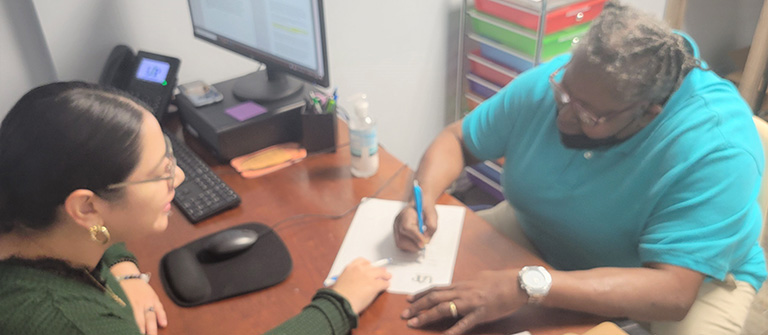
Our Crisis Care Program is intended to provide support for those facing instability in their lives. Our caring staff can provide access to community-based resources and emergency support to overcome their immediate need and assist them in creating a long-term plan to prevent facing similar problems in the future.
When visiting the UP Center you will need to provide:
Our staff is available to hels those in crisis or vulnerable housing situations stabilize their life and work towards self-sufficiency. Each program participant undergoes a formal intake process to assess their current situation. During their first day, the client meets one-on-one with a member of our Case Management Team, and together they create a customized care plan. Their care plan is a step-by-step roadmap tailored to the immediate and long-term goals necessary for the participant to overcome their challenges, stabilize their life, lift themselves out of poverty and achieve economic self-sufficiency. Comprised of achievable action steps such as obtaining a driver’s license, writing a resume, completing an online class, creating a personal budget or meeting with a substance abuse or mental health counselor—just to name a few—each participant’s customized care plan helps guide them through the program. Utilizing our on-site classrooms, computer lab, and training center, and through referrals to partnering nonprofit providers, program participants are provided with the curriculum, tools and resources necessary to achieve their action steps.
The relationship is the foundation for all our programs at the UP Center of St. Lucie County. Mentoring is a critical part of helping those seeking change to grow and learn through relationship-based learning opportunities. Our mentoring programs provide opportunities for both peer-to-peer networks and traditional volunteer mentors to support participants in our programs.